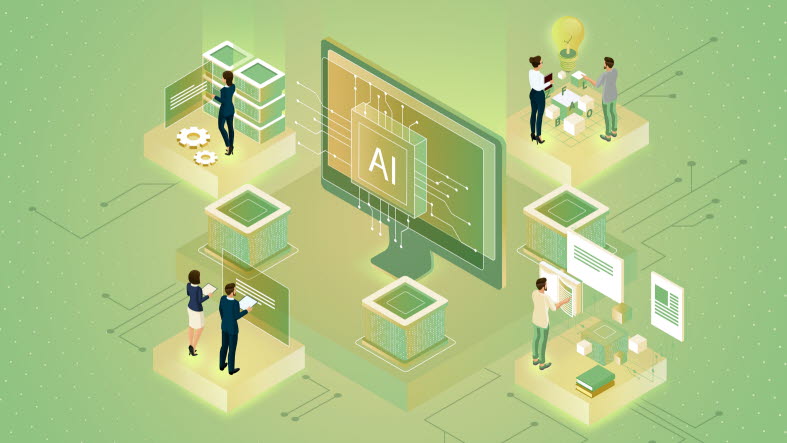Welcome back to SEB Tech Blog! In our ongoing exploration of the dynamic world of technology, today I focus to a pressing issue, the energy consumption of AI and chatbots. As these technologies continue to permeate various aspects of our lives, it's essential to delve into their environmental impact and explore strategies for sustainable usage. Join me as I uncover the complexities of energy consumption in the realm of artificial intelligence and chatbot development.
Exploring the cost burden of AI and chatbots
In the era of technological transformation, the integration of AI and chatbots into various sectors raises pertinent questions about financial responsibility. As businesses harness the potential of these innovative tools to streamline operations and enhance customer experiences, a fundamental query emerges, who foots the bill for their implementation and maintenance?
Financial considerations
It's undeniable that the adoption of AI and chatbots comes with significant investment. From initial development and customisation to ongoing updates and maintenance, the costs associated with integrating these technologies into existing infrastructures can be substantial. However, the benefits they offer in terms of efficiency gains, improved productivity, and enhanced customer engagement often outweigh the initial expenditure.
Traditional funding models
Traditionally, the onus of funding such initiatives falls on businesses themselves. Companies are expected to allocate resources towards technology investments as part of their strategic planning and budgeting processes. This financial commitment reflects their recognition of the competitive advantage and long-term value that AI and chatbots can bring to their operations.
Emerging cost distribution models
Yet, the landscape is evolving, and alternative models of cost distribution are emerging. In some cases, vendors offer AI and chatbot solutions as part of subscription-based or pay-per-use models, shifting the burden of upfront costs from businesses to service providers. This approach allows organisations to access cutting-edge technology without significant capital outlay, making it an attractive option for startups and small businesses with limited resources.
Societal considerations
Additionally, there's growing debate around the societal implications of AI and chatbots and whether the cost burden should be shared more broadly. Advocates argue that these technologies have the potential to create significant societal benefits, from improved healthcare outcomes to enhanced accessibility for marginalised communities. As such, there's a case to be made for government funding or industry collaboration to support the development and deployment of AI and chatbots in areas of public interest.
Addressing energy demands
Furthermore, as the energy demands of AI continue to rise, there's a pressing need for sustainable energy solutions to power these technologies. Figures suggest that AI server units alone could consume massive amounts of electricity annually, highlighting the importance of investing in cleaner and more efficient energy sources. Sam Altman's advocacy for fusion energy and investments in companies like Helion Energy underscore the industry's commitment to addressing the environmental impact of AI.
Driving smarter consumption patterns
However, it's essential to recognise that advancements in AI algorithms and technologies have the potential to contribute to smarter consumption patterns. Smarter algorithms can optimise resource utilisation, reduce energy waste, and enhance efficiency across various sectors, including manufacturing, transportation, and energy management. By leveraging AI-driven insights, businesses can make more informed decisions that minimise environmental impact and drive sustainable practices.
Realising positive impacts
Moreover, AI and chatbots are not just about cutting costs or improving efficiency, they have the power to transform entire industries and drive innovation. In healthcare, AI-powered diagnostics can help detect diseases earlier and improve patient outcomes. In finance, chatbots can provide personalised financial advice and streamline banking operations. In transportation, AI algorithms can optimise traffic flow and reduce congestion, leading to smoother commutes and lower carbon emissions.
SEB commitment to sustainability
Ultimately, while the financial and energy challenges associated with AI adoption are significant, the positive aspects cannot be overlooked. AI has the potential to revolutionise industries, improve quality of life, and address pressing societal challenges. With careful planning, collaboration, and investment in sustainable technologies, AI and chatbots can pave the way for a brighter and more efficient future for society as a whole.
At SEB, we recognize the importance of sustainability in all aspects of our operations, including the adoption of emerging technologies like AI and chatbots. As a responsible corporate citizen, we are committed to minimising our environmental footprint and maximising the positive impact of our technological innovations.
To this end, SEB will continue to:
Invest in Sustainable Practices
We will prioritise energy-efficient solutions and renewable energy sources to power our AI and chatbot infrastructure. This includes exploring partnerships with green energy providers and implementing energy-saving measures in our data centers.
Promote Responsible AI Usage
We will ensure that our AI and chatbot initiatives align with ethical guidelines and promote transparency, fairness, and accountability in their development and deployment. This includes ongoing monitoring and evaluation of their environmental impact and taking proactive steps to mitigate any adverse effects.
Support Innovation for Sustainability
'We will actively support research and development efforts aimed at leveraging AI and chatbots to address environmental challenges and promote sustainable development. This includes funding initiatives focused on leveraging AI for climate change mitigation, conservation efforts, and sustainable resource management.
By integrating sustainability into our AI and chatbot strategies, we at SEB aim to not only enhance our operational efficiency and customer experiences but also contribute to a more sustainable future for generations to come.
Together, we can harness the power of technology to drive positive change and create a greener, more prosperous world.
Author: Ulf Larsson, Security CTO

